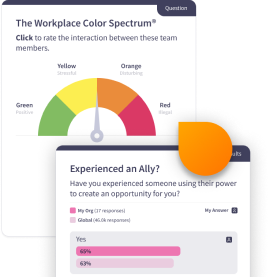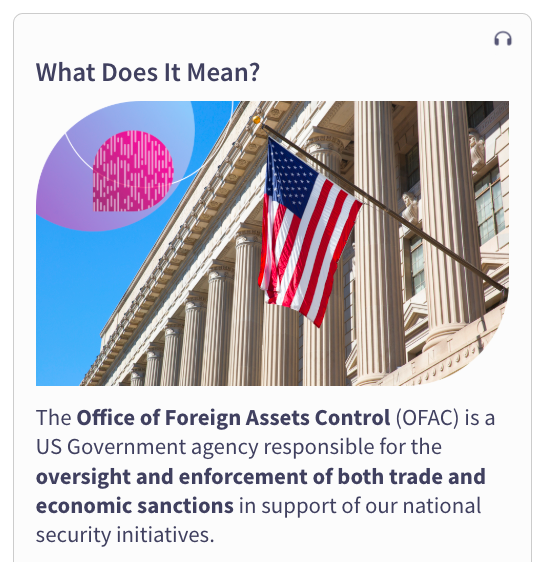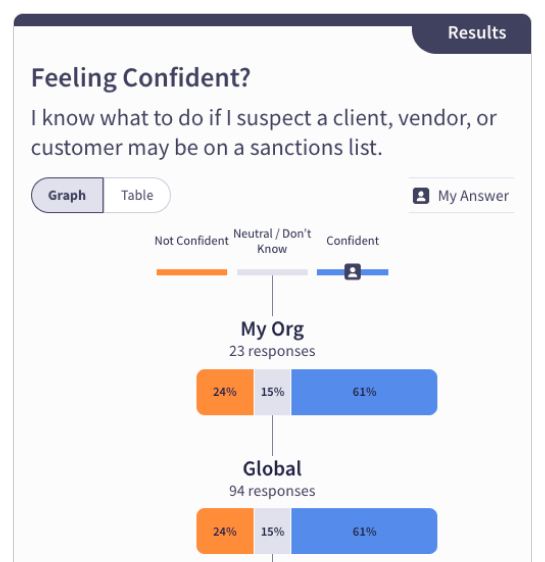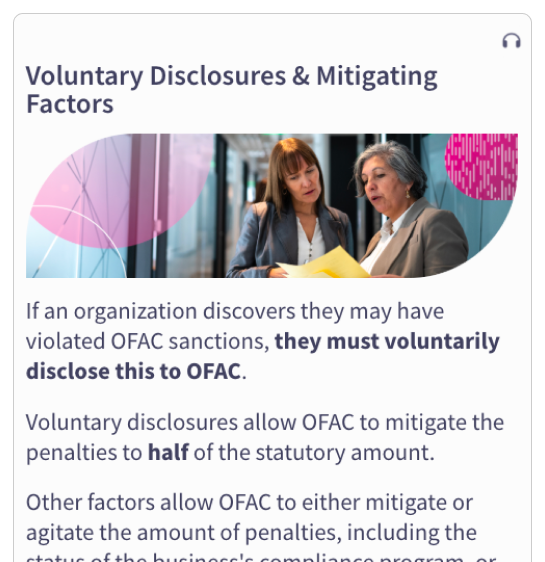
Learning the Office of Foreign Assets Control’s Duty
In today’s global economy, companies depend on a wide network of vendors and partners—but these ties can create hidden risks. The U.S. Office of Foreign Assets Control (OFAC) enforces economic and trade sanctions to protect national security, and violations can result in severe penalties and reputational damage. Organizations must ensure employees are confident leadership takes these obligations seriously and that every partnership meets the highest standards of integrity.
Microlesson DescriptionThis microlesson explains OFAC’s role in regulating who U.S. businesses can work with, where transactions occur, and which activities are restricted. Learners will see how OFAC’s lists of sanctioned individuals and entities—including terrorists, human rights abusers, and companies tied to blocked persons—create real compliance risks. The lesson also highlights penalties for violations and includes risk questions that surface employee perceptions of vendor integrity and leadership’s commitment to compliance.
Key Concepts- The Office of Foreign Assets Control (OFAC) oversees and enforces trade and economic sanctions in support of national security initiatives.
- OFAC is responsible for who we can do transactions with, what types of activities are allowed, and where in the world we can do them.
- If a company discovers they may have violated sanctions, they must voluntarily disclose the possible violation to OFAC.
Microlesson Features
- Employee sentiment pulsing questions that provide leaders with insights into their workforce's core cultural competencies
- Emtrain's Expert Answers tool, enabling employeees to submit anonymous questions about sensitive issues.
- Rich, contemporary video scences illustrating key concepts through realistic scenarios
- A data driven, skill-based approach to eLearning that establishes a shared language for employees.

Related Resources
Related Trainings
Frequently Asked Questions
Below are answers to common questions that employees and managers have about this topic. These FAQs provide a preview of what you’ll learn in this microlesson and why it matters.




